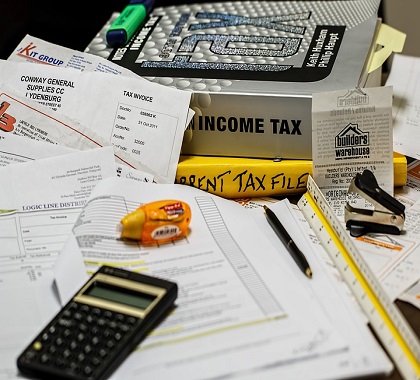Illinois state lawmakers propose changing to a progressive income tax to replace the state’s current flat tax.
The Illinois House of Representatives approved House Resolution 1025, a nonbinding legislation stating “support of a fair and progressive income tax that must reduce taxes on low and middle-income families while raising taxes on the wealthiest Illinoisans” on May 29.
Illinois’ state constitution requires all individuals be taxed at the same percentage of income.
J. B. Pritzker, a Chicago business owner and current Democratic Party candidate for governor, is campaigning on a proposed state constitutional amendment to remove the flat-tax requirement, which would clear the way for a progressive income tax.
Explaining the Terms
Illinois state Rep. Margo McDermed (R-Mokena) says Madigan and Pritzker are pushing for a radical change to the state’s tax system.
“The way the Illinois Democrats are using the term ‘progressive income tax’ means taxing people with different incomes at different rates,” McDermed said. “Right now, the Illinois Constitution has what is called a flat tax: all people are charged at the same tax rate, and all corporations have to be charged at the same tax rate.”
Doing the Math
McDermed says a flat income tax is fair to everyone, with higher-income people paying proportionately higher taxes.
“The argument that the Democrats and other progressives are trying to make is that a progressive income tax is fairer,” McDermed said. “Well, what’s unfair about everyone paying the same rate, 4.95 percent? Four point ninety-five percent of $10,000 is a whole lot less than 4.95 percent of $10 million.”
‘Election-Year Politics’
Orphe Divounguy, chief economist at the Illinois Policy Institute, says the push for a progressive income tax is a political ploy.
“The plan here is really election-year politics,” Divounguy said. “Their idea is to have a populist message that the Democrat gubernatorial candidate has endorsed that is basically saying, ‘We’re going to raise taxes on the rich and give the middle class a tax cut.'”
“We know that is impossible, given the state of spending in Springfield,” Divounguy said. “To raise the amount of revenue they want, they are going to have to tax low- and middle-income families as well.”
‘A Terrible Idea’
Divounguy says moving the state to a progressive income tax would make things worse for Illinois residents.
“The progressive income tax is a terrible idea and a bad deal for Illinoisans,” Divounguy said. “We know this because Illinois lawmakers haven’t been able to curb spending. In fact, state government spending has increased 25 percent faster than personal incomes in Illinois during the past decade.”
Divounguy says a progressive income tax would affect far more people than its proponents admit.
“It’s not going to be just a tax on the rich; it’s going to be a direct tax on the middle class,” Divounguy said. “The gubernatorial candidate, J. B. Pritzker, talked about tax rates like ones our neighbors have. If you look at our neighbors, like Iowa, the median family in Illinois would see a 29 percent increase in their tax burden.”



